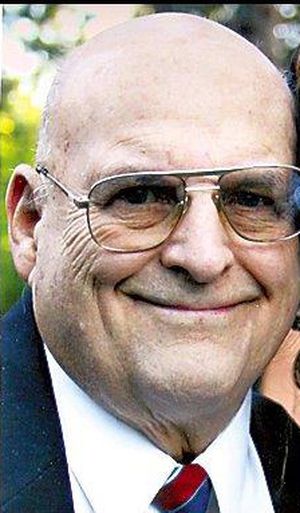Clark Hager — 100% for the Valley
From this morning's paper: Clark Hager fought for the Spokane Valley to be its own city for years, losing many battles but eventually winning the war.
Hager, 82, who died last month and will be remembered at a service Sunday, was a rock-ribbed conservative who pushed an agenda of smaller, more accountable government and lower taxes. Sometimes he used the pages of the Valley Herald, which he owned for several years in the mid-1990s. Sometimes he used theatrics. He frequently donned a red-white-and-blue top hat like Uncle Sam from a political cartoon. He occasionally towed a large, black-and-white, plastic bovine dubbed the Cash Cow to suggest his beloved Valley was paying more in taxes than it was getting back in services.
“He was 100 percent for the Valley,” said Joe McKinnon, also active in the incorporation movement. “That was the promised land as far as he was concerned.”
To read the rest of this item, or to comment, continue inside the blog.
, , , Born in New Jersey in 1932, Hager came to Washington in the 1950s to work for Boeing and eventually moved to the Valley, where he owned the Jobs Co., an employment agency. He was former president of the Valley Chamber of Commerce, active in the local Republican Party and numerous campaigns.
Hager sometimes came off as demanding when confronting public officials about the shortcomings he perceived in them, former Spokane County Commissioner Steve Hasson recalled. But it was mostly an act.
“He could be obnoxious, but under that rough exterior was a gentle guy,” said Hasson, who said they eventually bonded over a feeling that government should do fewer things, but do them well.
Between 1990 and 2002, residents of the Valley tried five times to form a city in some part of the sprawling suburbs. Hager was in the middle of the efforts as a citizen-activist.
In 1992 he bought the Valley Herald from John Vlahovich, a longtime incorporation ally, for $50,000 and continued to use the paper’s editorials to push that agenda. The two later wound up in court in a dispute over the full payments of the debt. An arbitrator eventually ordered Hager to pay up, and he published the weekly until 1996 when it merged with the Valley News.
“He wasn’t afraid to stand up for what was right,” said Philip Rudy, another longtime Valley Republican. “He wasn’t just filling up space on the pages.”
After the merger, Hager changed from publisher-activist back to citizen-activist, attending government boards and commissions and questioning their use of public money and demanding more openness. One of his frequent targets was the Public Facilities District, which operates the Spokane Arena and the Convention Center.
Kevin Twohig, chief executive officer of the district, said Hager would attend most meetings and be “fairly quiet” until the comment period came.
“Sometimes he’d go off on tangents. Sometimes he was pointing out things that we should be considering,” Twohig said.
But chief among his concerns was a city for the Valley, and as the years passed, supporters whittled down the boundaries to an area that had been supportive in previous votes. In 2001, they got a huge boost when the city of Spokane talked about annexing the Yardley area, a commercial district on what was Spokane’s eastern border and would be on the proposed Valley city’s western edge. The next year, incorporation passed.
Hager was a Republican who could get along well with Democrats when they agreed on Valley issues.
“He was ultra, ultra conservative. But he could have a sense of humor about it,” noted Valley Democrat Sally Jackson said.
In some respects, Hager was a precursor of today’s tea party activists, fiscally conservative, suspicious of government, said McKinnon, another Democrat. But if he thought it was right for the Valley, McKinnon added, “he never gave up and he never gave in.”
Hager’s wife of 54 years, Gloria, preceded him in death as did his son Clark Jr. He is survived by two daughters, five grandchildren and eight great-grandchildren.

